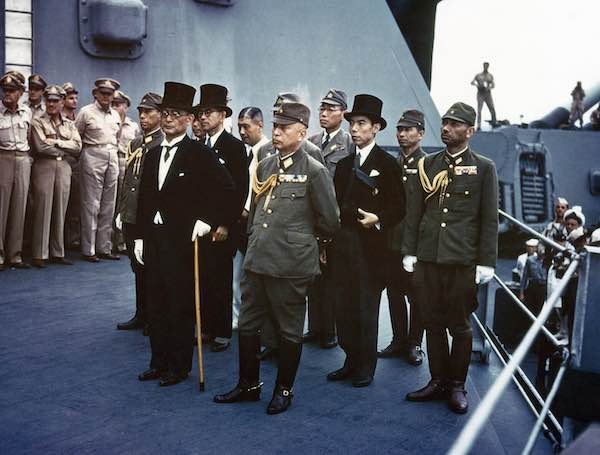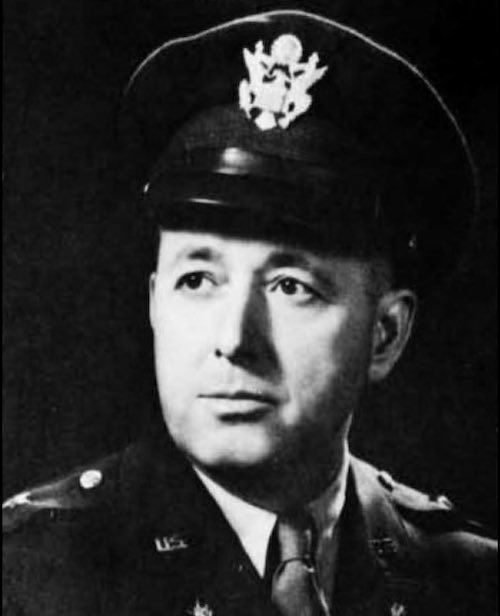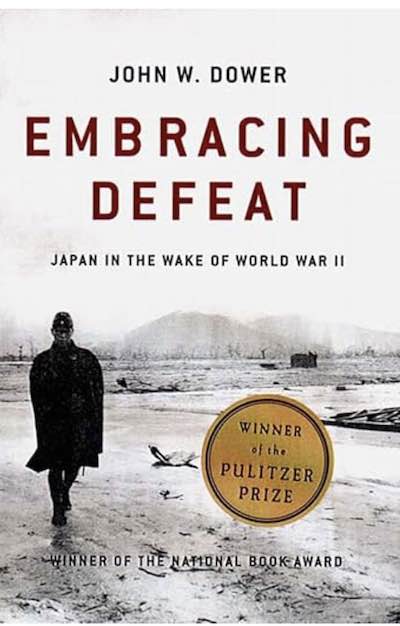On September 2, 1945, Japan surrendered unconditionally, effectively ending World War II. The American postwar occupation of Japan began shortly thereafter.
Japanese forces committed many atrocities during World War II. Their victims included subjugated Asian populations, as well as Allied prisoners of war. The postwar era would bring a reckoning. Among the first tasks of the US occupation authorities was to round up Japanese officials who were guilty of war crimes.

Adjacent to this was determining the culpability of Emperor Hirohito. Hirohito’s future status was a sensitive topic.
The Allies did not demand Hirohito’s overthrow and imprisonment as an explicit condition of surrender, which prevented Japan from continuing the fight until the last man. But Hirohito’s long-term continuation on the Chrysanthemum Throne was not a foregone conclusion, either. That would depend on whether or not the American occupation authorities would try him as a war criminal.
In a worst-case scenario, Hirohito would hang, and the Japanese would stage a general insurrection against the US occupation. A bad outcome for everyone. Therefore, the options had to be weighed carefully, and it would all begin with an investigation.
This is the subject of the 2012 movie Emperor.
Emperor does not get the history perfect, but it does well by Hollywood standards. In the beginning of the movie, for example, we see Prime Minister Hideki Tojo’s botched suicide attempt. (Shortly before his arrest, Tojo shot himself in the chest, but missed his heart.) Japanese politicians that few Americans are familiar with, like Lord Keeper of the Privy Seal Kōichi Kido, have significant roles in the movie—as they did in history.
The main character in Emperor is not General Douglas MacArthur (portrayed by Tommy Lee Jones), as the movie trailers would suggest. The main character is the much less well-known Bonner Fellers, the brigadier general charged with investigating Hirohito’s role in the war, and determining whether or not he should stand trial.
How did all this stack up against the typical Hollywood romcom or superhero movie at the box office? Emperor received lackluster reviews following is release in 2012, and this does not surprise me. Moviegoers expecting a World War II action film, like Fury or Saving Private Ryan, would have been disappointed. Emperor is not a World War II movie, in the classic sense. Emperor is a postwar tale of political intrigue, that draws heavily on the domestic politics of wartime Japan.
Emperor is therefore a much better movie if you already know something about the history of postwar Japan. For this, I recommend John W. Dower’s Embracing Defeat: Japan in the Wake of World War II.
Emperor also contains a romantic subplot between Fellers and a Japanese woman, whom he met and romanced before the war.
I initially thought that this had to be a Hollywood contrivance. What, after all, could be more clichéd in a movie about Japan, than yet another cross-cultural romance between a dashing American man and a demure, ultra-feminine Japanese woman?
But clichés are often clichés for a reason. Fellers did travel to Japan in 1911, as a young man, and he did have a romantic relationship with a Japanese exchange student. Though Fellers did not marry the Japanese woman, she might have been on his mind when he traveled to Japan as an American general in 1945.
All of this supposition is based on Fellers’ extant diaries. Fellers was married to an American woman, Dorothy Ross Dysart Fellers. General and Mrs. Fellers died in 1973 and 1981, respectively, long before the making of Emperor. Neither, therefore, was able to comment on the historical accuracy of the general’s past romantic entanglements as portrayed in the film.
Real life was, undoubtedly, sexed up a little for dramatic purposes. I’ve done some research on Brigadier General Bonner Fellers. Let’s just say that he seems far less exciting and charismatic than the movie version of him (played by Matthew Fox). We can only guess what Bonner Fellers himself would have thought.
-ET



